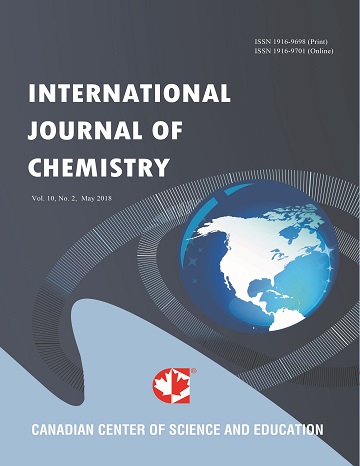Uptake of Heavy Metals by Tomato (Lycopersicum esculentus) Grown on Soil Collected from Dumpsites in Ekiti State, South West, Nigeria
- Oluyemi Adefemi
- Eyitayo Awokunmi
Abstract
People in recent times have engaged in the habit of cultivating on abadoned dunpsites or soil collected from the existing ones because of their fertility. Lycopersicun esculentus is one of the vegetables that is mostly cultivated on such sites and also commonly consumed in Nigeria. Uptake of heavy metals by tomato (Lycopersicum esculentus) grown on soil collected from dumpsites located in Ekiti State, Nigeria was determined with a view to monitoring the pollutional status of the environment. Concentration of heavy metals were found in the range of Cd (27.20-55.74), Co (5.18-38.15), Cr (9.30-55.40), Cu (66.67-107.00), Fe (200.01-655.90), Pb (22.32-61.60), Mn (16.90-49.20), Ni (12.06-46.60), Sn (25.90-78.99) and Zn (7.54-91.10) all in mg/kg. The sequence of accumulation is in order of leaf>stem>root>fruit and Translocation factor (TF) values greater than 1 revealed that heavy metals were translocated into the aerial part of the plant. However, the study serves as pathway for the investigation of these heavy metals which may eventually enter the food chain and subsequent ingestion by man.
- Full Text:
 PDF
PDF
- DOI:10.5539/ijc.v5n3p70
Index
Contact
- Albert JohnEditorial Assistant
- ijc@ccsenet.org
